Video
Sign up for our newsletter
We summarize the week's scientific breakthroughs every Thursday.
-
 Space
SpaceStunning images of swirling gas and dust may show a planet forming
Infrared images show a spiral of gas and dust around a star 520 light-years away. A smaller, tantalizing twist hints at where a planet is coalescing.
-
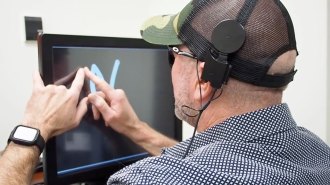 Neuroscience
NeuroscienceBlind people can ‘see’ letters traced directly onto their brains
Arrays of electrodes can trace shapes onto people’s brains, creating bursts of light that people can “see.”
-
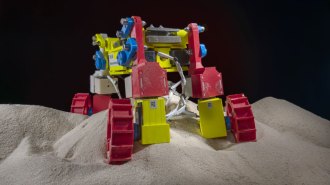 Tech
TechWiggling wheels could keep future rovers trucking in loose lunar soil
A rover that wriggles through soil could climb hills on the moon or Mars that are too steep for a simple wheeled bot.
-
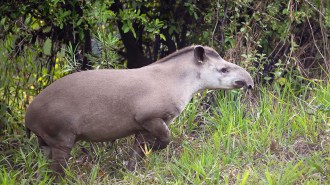 Ecosystems
EcosystemsTapirs may be key to reviving the Amazon. All they need to do is poop
Brazilian ecologist Lucas Paolucci is collecting tapir dung to understand how the piglike mammals may help restore degraded rain forests.
-
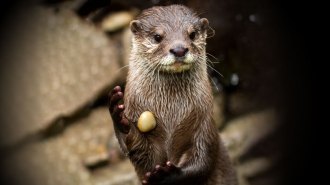 Life
LifeWhy otters ‘juggle’ rocks is still a mystery
Shuffling pebbles really fast looks as if it should boost otters’ dexterity, but a new study didn’t find a link.
By Susan Milius -
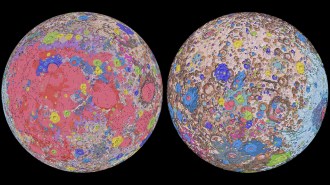 Planetary Science
Planetary ScienceThis is the most comprehensive map of the moon’s geology yet
Cartographers merged Apollo-era maps and modern lunar observations to into a new geologic map of the moon.
-
 Health & Medicine
Health & MedicineWhy 6 feet may not be enough social distance to avoid COVID-19
Scientists who study airflow warn that virus-laden drops may travel farther than thought.
-
 Physics
PhysicsHere’s how the periodic table gets new elements
Today’s scientists keep adding to the periodic table. But an element has to earn its spot.
-
 Climate
ClimateThe largest Arctic ozone hole ever measured is hovering over the North Pole
A strong polar vortex in early 2020 led to what may be a record-breaking hole in the ozone layer over the Arctic.
-
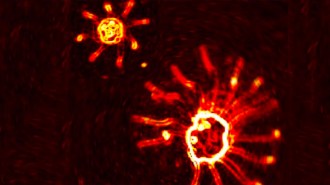 Life
LifeAlgae use flagella to trot, gallop and move with gaits all their own
Single-celled microalgae, with no brains, can coordinate their “limbs” into a trot or fancier gait.
By Susan Milius -
 Health & Medicine
Health & MedicineYou can help fight the coronavirus. All you need is a computer
With Folding@home, people can donate computing time on their home computers to the search for a chemical Achilles’ heel in the coronavirus.
-
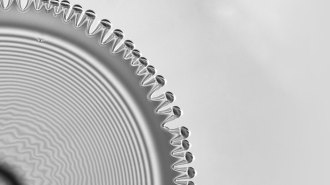 Chemistry
ChemistryEvaporating mixtures of two liquids create hypnotic designs
Through the magic of surface tension, mixtures of two liquids form fingerlike protrusions and other patterns as droplets evaporate.